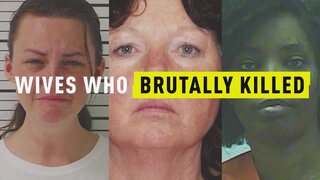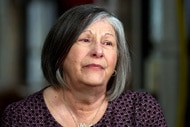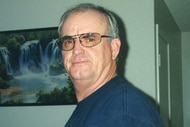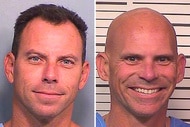Create a free profile to get unlimited access to exclusive videos, breaking news, sweepstakes, and more!
Man Who Allegedly Considered Pinning His Estranged Wife’s Death On Their Daughter Is Convicted Of Her Murder
Prosecutors say Rod Covlin killed Shele Danishefsky just one day before she planned to cut him out of her will.
A New York City man, who once allegedly considered pinning his estranged wife’s death on his own daughter, was convicted this week for the murder.
A jury found Rod Covlin, 45, guilty of one count of second-degree murder in the 2009 death of his estranged wife Shele Danishefsky, who was found dead in a bathtub with her neck snapped.
When the verdict was read, her family broke out in tears.
“The wheels of justice turn very slowly, and we always had confidence that ultimately this day would come,” said Danishefsky’s brother-in-law, Marc Karstaedt, according to The New York Times. “Finally, after nine years, we have justice for our beloved Shele.”
Danishefsky, 47, was killed on New Year’s Eve just one day before she planned to remove Covlin from her will, cutting off the unemployed stockbroker’s access to her $5.2 million fortune, the New York Post reports.
Prosecutors said the killing was motivated by Covlin’s extreme greed and relentless desire to benefit from her millions, even scheming after her death to gain access to the children’s inheritance in a series of bizarre schemes, including a plan to kidnap his daughter and marry her off in Mexico. That plan, and others like an alleged plot to kill his own parents who were caring for the children, never came to fruition.
Covlin and Danishefsky met at a Jewish singles party in 1998 and were engaged just a few months later. Despite an 11-year-age difference between the pair, they’d get married and have two children, Anna and Myles.
Danishefsky, who was the senior vice president for private wealth management at UBS, reportedly funded many of her husband’s endeavors, including his schooling, failed business ventures and travel to professional backgammon tournaments.
The marriage between the pair began to unravel in 2009 and the pair separated in April of that year. Danishefsky rented her estranged husband an apartment directly across from hers in an attempt to ease the transition for her children.
But the divorce and custody process became a bitter battle, and Danishefsky began to fear Covlin.
In a 2009 letter to her sister, Eve Karstaedt, she wrote that she was “very scared that at some point in the future all his anger and rage may result in something bad happening.”
Covlin’s girlfriends also testified during the trial about his intense rage. Patricia Swenson testified in court that in August 2009 he told her that he wanted to kill his wife or have her die.
Danishefsky planned to remove Covlin from her will, but she’d never get the chance. On Dec. 31, 2009 her daughter would find her lifeless body in a bloody bathtub and call Covlin, who told authorities he pulled her from the tub and tried to perform CPR.
The death was initially believed to be accidental and she was buried without an autopsy, at the request of her Orthodox Jewish family. But as suspicions began to grow around Covlin, her body was exhumed and an autopsy was performed in April 2010.
The medical examiner discovered she had a broken hyoid bone, according to The New York Daily News.
It would be several years before investigators had enough evidence to arrest Covlin. His defense attorney, who plans to appeal the verdict, argued that the case relied only on circumstantial evidence and claimed that because the death was initially considered an accident, investigators failed to gather critical evidence at the scene, including fingerprints or DNA.
“It is impossible to know beyond a reasonable doubt what happened to Shele Covlin, how it happened and why it happened,” Robert Gottlieb said, according to The Times.
The prosecution acknowledged the circumstantial nature of the case, but also told jurors that all the evidence pointed to Covlin.
“There’s only one person in the universe, to the exclusion of every other person on the planet, only one person who had the motive, the opportunity and the means,” Assistant DA Mathew Bogdanos said.
In the end, jurors would agree, taking around two days to consider the evidence before delivering their guilty verdict Wednesday.



























